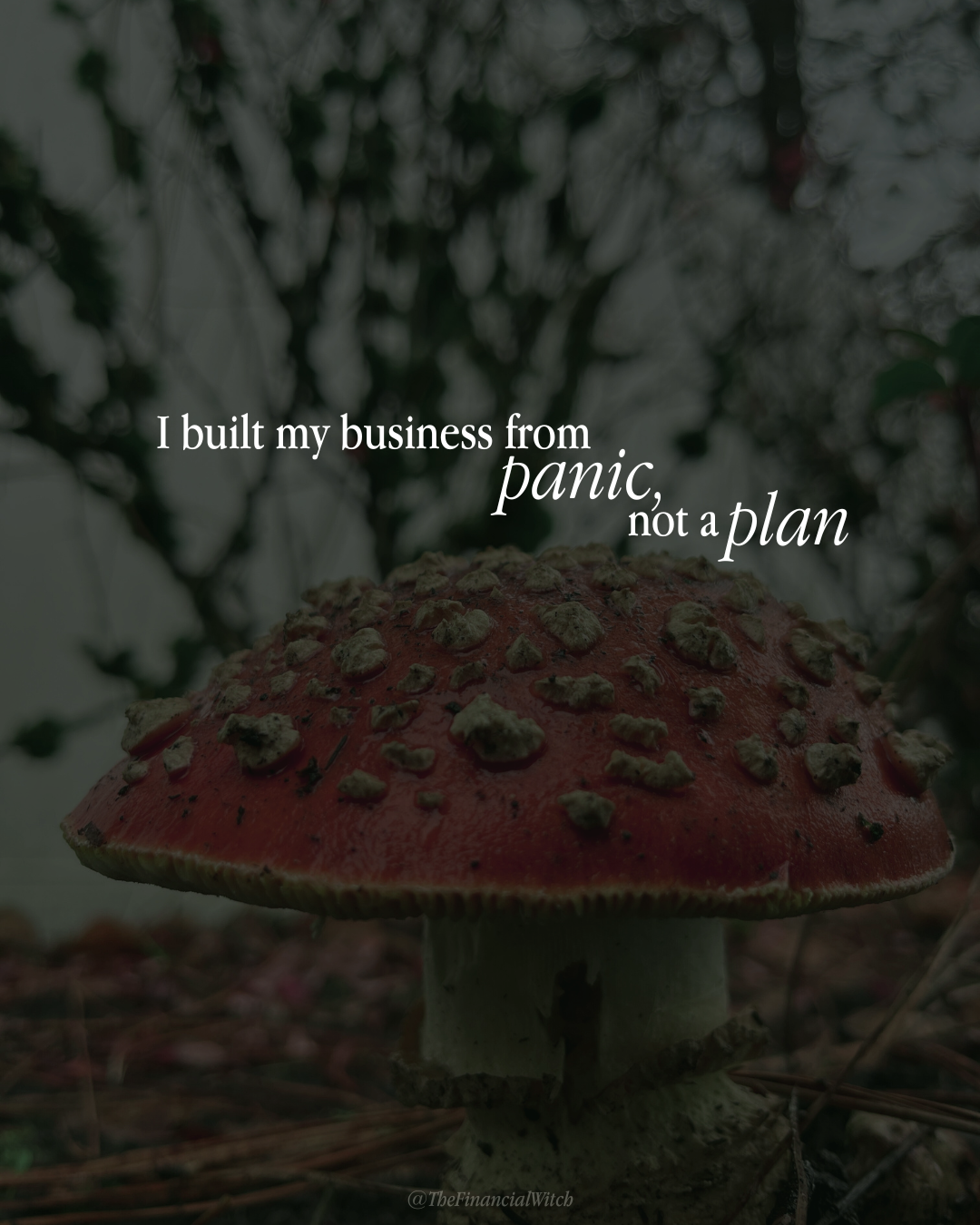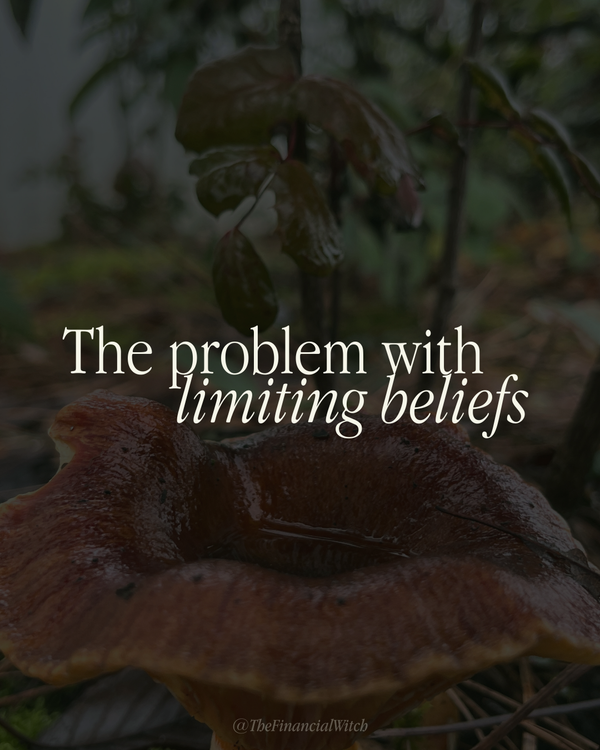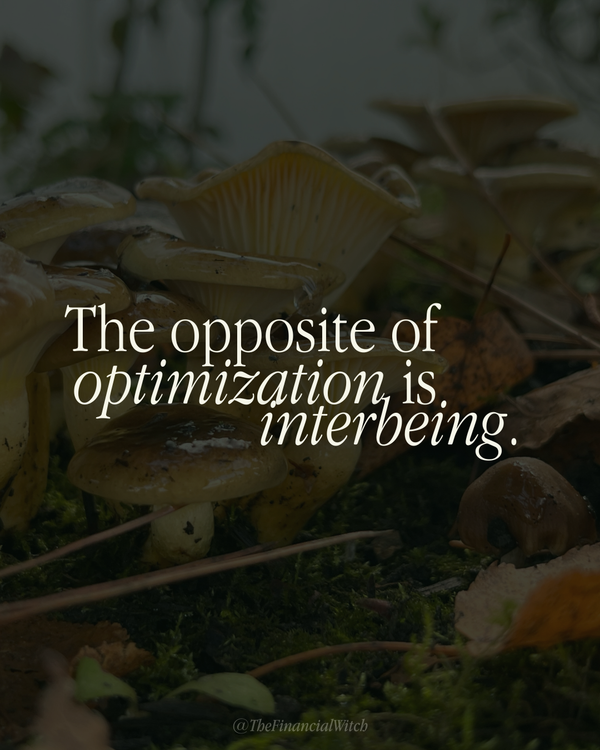I built my business from panic, not a plan
Building a business from panic flew in the face of everything I was taught to believe about manifesting my dream life.

I didn’t start my business because I had a vision. I built it because I had a brand new baby, no job, and a body that couldn’t survive the 9-5 grind anymore. I built it in the aftershock of emerging disabilities, years of conditioning in an MLM, and a grief so thick I could hardly breathe. There wasn’t a five-year plan or a brand story or a content strategy anywhere to be found; just the sheer weight of necessity pushing me to make something work when absolutely nothing else would. My business may have some of those things now, but it didn’t start that way.
When I joined an MLM in 2017, I was driven by the promises of freedom and influence, as many others are. I was positively motivated, chasing a dream. But after five years of spinning my wheels amidst undiagnosed ADHD and autism, going nowhere and making no money while being told my only problem was my own self-motivation, I couldn’t sustain that positive motivation anymore.
Neurodivergent folks experience unemployment and underemployment at staggeringly high rates compared to neurotypical folks, and are often contending with the twin demons of shame and ableism at the same time. There’s the assumptions of laziness, of refusal to work, of simply “not trying hard enough.” I’ve heard them all and you probably have too. What we call “unemployable” as a neurodivergent person is really more like “unprotected.” Capitalist, patriarchal expectations of professionalism and masking in the workplace, combined with the surveillance culture rampant in many places of employment, make it so that neurodivergent folks have a much harder time sustaining full-time employment, and part-time employment hasn’t been able to pay anyone’s bills in decades, so even if you do manage to locate employment that doesn’t deplete your aura week after week, you still have to find another way to make money.
Starting your own business comes with a lot of promises, too: liberation from restrictive schedules, being your own boss, having control over your money, ripping off the ceiling on your earning potential. But leaving the employment world doesn’t mean you leave behind the systems of oppression which weave themselves through it; they just wear different costumes now. The types of businesses (and business owners) who are glorified are the lone wolf, the rugged individual who, instead of traversing the plains with a horse and a gun, now mines Bitcoin from Aruba and sells courses claiming to help others replicate their lifestyle. Passive income, while awesome in theory, has been repackaged and sold to the working class as a one-way ticket out of poverty and employment without actually resulting in them doing less labor.
On top of that, when you enter into business within fields that are typically feminized and therefore devalued, like sex work or spiritual labor or intuitive care work, the layers of shame and doubt compound themselves. Wanting to make a living through these types of labor is often seen as suspect or greedy or immoral—that’s devaluation of labor in action.
Having my son wasn’t a negative experience, but it did give me a crash course in being negatively motivated: running away from a nightmare rather than pursuing a dream. There was a gaping hole left behind when I left the MLM, a hole where once had lived all of my vision boards and affirmations and systems and motivation. What filled it instead was anxiety, fear, doubt, and—you guessed it—shame. All of this love I had for this brand new human was colored with the possibilities of so many timelines where I could and would fail him. We were barely scraping by as new parents, both of us unable to even get a call back from the hundreds of job applications we were collectively submitting every month. We were getting by on rental assistance, but the program was on its last round of funding and time was very much running out. To say I was panicking would probably be an understatement, on top of the fog of the first few months of postpartum.
There was, however, a sprinkle of positive motivation within that nightmare, because I had a fresh perspective on myself and the world after leaving behind a system that had scaffolded my life for years—and becoming a mother, AKA an entirely new person I’d never been before. I knew I had a perspective that was at once unique and entirely relatable, and I knew how I wanted to use my experiences to help others. Creating my business was a move based in urgency and fear, but also inspiration and deep, deep care.
Building a business from panic flew in the face of everything I was taught to believe about manifesting my dream life: the energy you take action from makes the difference. But if that’s the case, then creating a business in a state of intense need and urgency would spell out certain doom. If I continued believing that, I would have never started anything. If I waited for the right internal conditions to appear, rather than making do with what I had and working to cultivate more right conditions, I’d probably be dead. Or at least homeless.
The thing I wish someone had told me, and perhaps what I’m trying to tell you now, is that just because you’re doing something out of necessity doesn’t mean you’re doing it wrong. There is so much shame that clings to business ownership when it’s born from panic instead of passion, when your entrance into entrepreneurship was more like a crash landing than crossing over a golden bridge. The world only makes space for certain kinds of “entrepreneurs”: the tech bros with seed funding, the married white women with aesthetic storefronts and a financial cushion beneath their experiments, the passive-income alchemists who build courses about building courses. These models are seen as strategic. Noble. Scalable. Worthy of admiration.
But when you’re a chronically ill person doing tarot readings between pain flares to pay for groceries, when you’re a disabled herbalist selling medicine you made with your last ounce of energy, when you’re a neurodivergent witch trying to create something out of your lived experience because no one would hire you, suddenly your business is suspect. Pitied. Scrutinized. Treated as less real.
If anything, the kind of business that’s built out of necessity, especially when it’s being held together with leftover energy and borrowed time, often carries a kind of integrity that’s harder to find in more polished or well-funded ventures. That’s not because the struggle itself makes it noble, but because there’s usually less distance between the need and the offering. You’re not creating something just to fill a market gap or follow a trend. You’re responding to a real need—your own, and often one that echoes in the people around you.
There’s less room for posturing when you’re building from a place of urgency. You don’t have the resources to over-perform or over-polish. What you offer tends to be closer to the bone, closer to the truth of your experience, and that truth has a kind of gravity to it. It resonates with people—not because it’s branded well, but because it’s real. That doesn’t mean it’s any easier or that you’ll always feel good about what it requires from you to keep your business alive under capitalism’s growing demands, but it does mean that what you’re building is rooted and alive. It speaks to something actually lived, not just imagined.
I think that still counts for something.
Creating a business from scratch may not have been your first choice—it may not have been a choice at all. But that doesn’t mean you need to spend energy defending that choice to yourself or to the voices around you that tell you you’re failing. You do not need to trade one capitalist metric of success for another; now, you decide what success looks like, even if it just looks like meeting your basic needs. Responding to necessity is a skill that makes the difference between life or death, at times, and your business is proof that you’ve chosen life again and again. It’s lunar wisdom glowing, transmuting rays of solar extraction. Reclaiming your labor is seizing the means of production, so you’re already a revolutionary.

If this essay landed with you, you’re invited to the next Shame Alchemy for Entrepreneurs call on Monday, May 26th. These are community sessions I facilitate for people navigating the emotional toll of running a business under capitalism. I offer structure, reflection, and prompts to help us move through what’s coming up, together. This is the last call that will be free to the public—after this, they’ll be exclusive to the Co-Founder tier ($6/month). If you’ve been wanting to come, or it sounds like a space you’d benefit from, I’d love to have you there.



